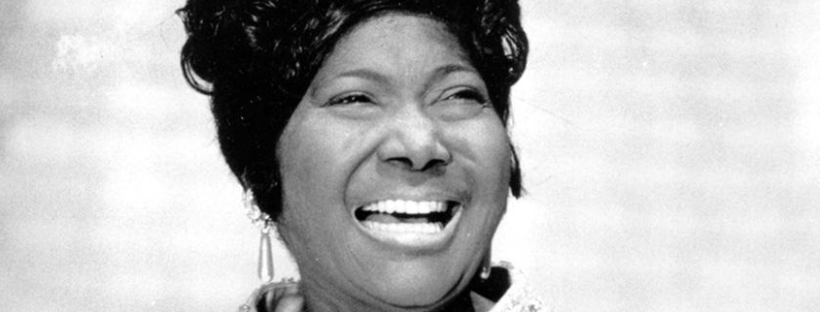
Isaac Hockenhull
Isaac Hockenhull – A Journey Through Life, History, and Legacy
The name isaac hockenhull may not be widely recognized in mainstream historical narratives, yet his life story carries significant cultural and personal importance. His journey, interwoven with resilience, love, and historical context, reflects the complexity of human experience in an ever-changing world. By understanding his story, we not only explore an individual’s life but also gain insight into the times he lived in and the social dynamics that shaped his path.
Early Life and Background
While specific details about Isaac Hockenhull’s early years remain scarce, historical context allows us to better understand the environment in which he grew up. Born in a period of great social and economic change, Isaac would have experienced both challenges and opportunities unique to his generation.
In the United States during the early-to-mid 20th century, societal structures were undergoing transformation. The Great Depression, segregation, and rapid industrial changes affected millions of lives. For someone like Isaac, navigating these shifting landscapes meant developing a strong sense of adaptability and determination.
Family upbringing often played a vital role during this era, with close-knit communities offering mutual support. Such an environment likely helped shape his character, instilling values of responsibility, perseverance, and ambition.
Education and Personal Development
Education, particularly for African Americans in the first half of the 20th century, was often met with systemic barriers. Nevertheless, those who pursued knowledge found ways to overcome these challenges through community-led initiatives, historically Black colleges and universities (HBCUs), and self-study.
Isaac Hockenhull’s journey would have required resourcefulness. While formal academic records are not widely publicized, individuals of his era who succeeded typically combined formal learning with real-world skills. These abilities not only helped in career advancement but also in navigating the complex racial and social hierarchies of the time.
The development of personal discipline and resilience likely contributed to his later life decisions, setting the stage for his professional and personal endeavors.
Career and Professional Life
Though Isaac Hockenhull’s career details remain less documented compared to public figures of his time, the available historical framework provides clues to the kinds of opportunities and challenges he might have faced.
African Americans during the early to mid-1900s often found work in industrial, service, or agricultural sectors, yet many also pursued entrepreneurial paths or artistic careers. Isaac’s professional life likely reflected both the constraints and the emerging opportunities of his era.
The dignity of work—regardless of the field—was a defining value for his generation. Perseverance in the face of limited access to high-paying positions was common, and many individuals supplemented their income with community-oriented projects or skilled trades.
Personal Life and Relationships
One of the most notable aspects of Isaac Hockenhull’s life is his marriage to the legendary singer Mahalia Jackson. Often referred to as the “Queen of Gospel,” Mahalia Jackson was a powerful cultural and musical figure whose career influenced generations of artists and activists.
Isaac and Mahalia married in 1936. Their union came at a time when Mahalia was still rising in her career, and Isaac played a role in her personal life during these formative years. However, like many relationships under the pressures of fame, financial struggles, and differing visions for the future, their marriage faced challenges.
The couple eventually divorced in 1941. While their relationship did not last, the period they spent together remains a notable chapter in both of their lives. It serves as a reminder that personal connections, even when temporary, can deeply shape an individual’s journey.
Historical and Cultural Context
To understand Isaac Hockenhull life, it is essential to place it within the broader historical context of America in the 1930s and 1940s. This was a period marked by:
-
The Great Depression: Economic hardship defined the lives of millions, forcing many to adapt to scarce resources.
-
Racial Segregation: The era’s racial barriers limited opportunities for African Americans, yet also inspired resilience and solidarity within Black communities.
-
Cultural Renaissance: Despite social struggles, the early 20th century saw a flourishing of African American culture in music, literature, and art—movements that individuals like Isaac were indirectly connected to.
Isaac’s connection to Mahalia Jackson also placed him near the heart of gospel music’s rise, a genre deeply rooted in African American history and spirituality.
Later Years and Life After Marriage
After his separation from Mahalia Jackson, Isaac Hockenhull continued his personal journey away from the public spotlight. Many individuals in similar situations focused on building stability, whether through steady employment, community involvement, or family life.
While Isaac may not have pursued public recognition, his life after marriage likely reflected the values of resilience and adaptability he had developed earlier. Living during a time when personal narratives were rarely recorded unless tied to fame, many stories like his remain known only to close friends and family.
Legacy and Reflection
The legacy of isaac hockenhull is best understood not through celebrity status but through the lens of human experience. His life intersected with a moment in history when cultural, economic, and social forces were in flux. His marriage to Mahalia Jackson, though short-lived, connected him to a significant chapter in American music history.
Isaac’s story reminds us that history is not solely shaped by those whose names appear in textbooks or headlines. It is also built by individuals whose lives, though less documented, form the fabric of society. Every relationship, career choice, and personal challenge contributes to the collective human story.
In the modern era, revisiting the lives of people like Isaac is important for a more inclusive understanding of history. Recognizing these quieter contributions helps balance narratives that often focus only on the most prominent figures.
The Broader Lesson from His Life
The enduring lesson from Isaac Hockenhull’s life is that personal worth is not determined by fame. His experiences—navigating love, economic hardship, and societal change—mirror the stories of countless individuals who lived with dignity and perseverance despite challenges.
His journey also highlights the importance of context. Without understanding the societal structures and norms of his time, it’s easy to underestimate the resilience required to live a fulfilling life in those circumstances.
In remembering Isaac, we also acknowledge the interconnectedness of personal and historical narratives. His life, though not as widely chronicled, intersected with larger movements in music, race relations, and American history.
Conclusion
The story of isaac hockenhull offers a glimpse into the life of a man whose path crossed with a cultural icon, yet whose personal journey remained largely outside the spotlight. His resilience in the face of life’s challenges, his role in a significant personal relationship, and his place within a transformative period of American history make him a figure worth remembering.
While history often celebrates the most famous names, it is equally important to honor the quieter stories—those that speak of perseverance, humanity, and the shared struggles of everyday life. Isaac’s story reminds us that every life, no matter how modestly documented, carries meaning and contributes to the larger narrative of our shared past.


